8 Big Reasons Why It Is Good to Buy a Home Rather Than Renting It
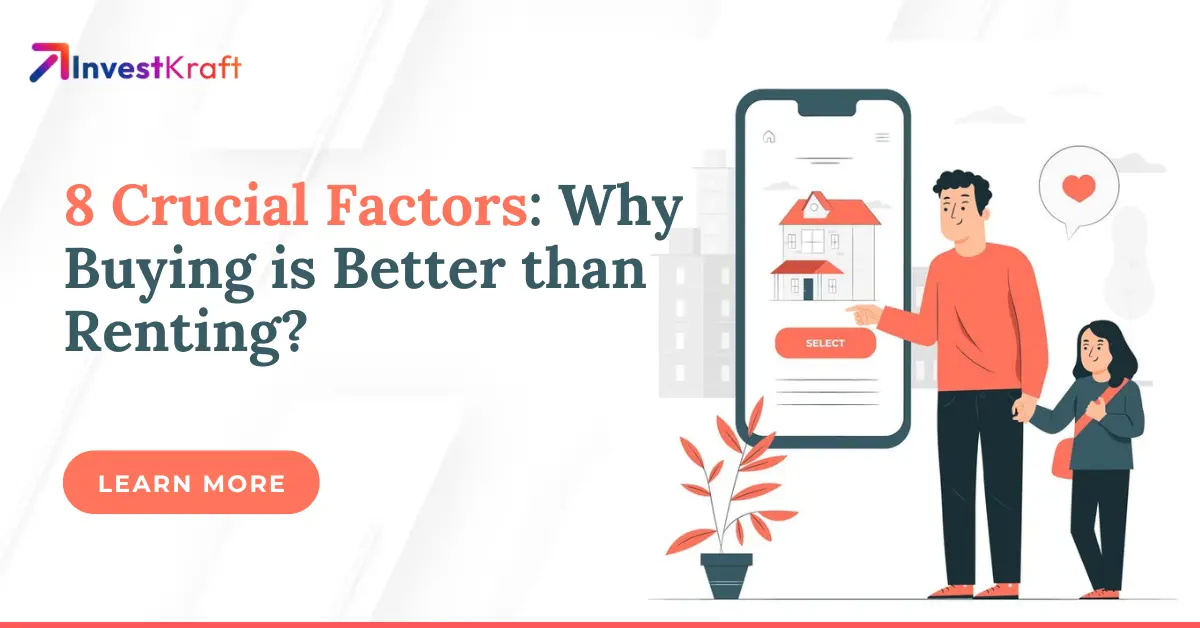
Do you find it difficult to decide between renting and owning a home? Nearly everyone finds it difficult to choose the best course of action. Purchasing a home will be a significant lifetime cost and might wipe out all of your money. To keep your assets safe and secure, you must also deal with the ongoing formality of paying property taxes and house insurance premiums. The cost of routine house upkeep might rise. A homeowner should make a strategy to set aside between 1% and 4% of the value of their property, allowing them to use those funds for repairs as needed.
Putting aside the expenses for a home's worth as an investment, purchasing a property offers several advantages. The house you bought will eventually be worth more than what you paid. Even using your own home as a source of income is an option. When you pay off your mortgage in full, you become the owner, your credit score rises, and you may more easily prepare for a happy retirement with a stable place to live. The gratification of declaring, "I too own a house," is priceless.
Purchasing a home as opposed to renting is a personal choice. Through this post, Investkraft endeavours to assist those who, like you, are having trouble choosing between two possibilities. The first is purchasing a house, and the second is renting one. You may choose Investkraft and take into account the following 8 big reasons when determining if purchasing a home is a wiser choice than renting an apartment. Discover the advantages of purchasing a property as opposed to renting if you continue reading.
What are the Challenges of Renting a House in India?
Renting a house in India can be quite challenging for tenants due to -
Rent Prices Rising Often
Renters in India often struggle with the issue of sudden and arbitrary rent increases. Landlords have the freedom to raise rents whenever they please, even in the middle of a lease, causing difficulties for tenants. This is especially challenging for low-income and middle-class households who find it hard to cope with the increasing expenses.
Lack of Property Control
Indian renters frequently experience limited control over the properties they rent, as landlords often impose restrictions on renovations, pets and the number of guests. This lack of autonomy can be frustrating for tenants who want to make their living spaces feel more personalized and accommodating to their lifestyle choices.
Lease Renewal Uncertainties
Another challenge that tenants often face is the uncertainty surrounding lease renewals. Landlords may decide not to renew a lease for different reasons, such as selling the property or wanting to move in themselves. As a result, tenants may have to find a new place to live on short notice, which can be disruptive and expensive due to the costs associated with moving.
Absence of Standardized Rental Agreements
The lack of standardized rental agreements across states in India contributes to renter challenges, as each state has its own rental laws, leading to confusion and disputes. This lack of uniformity can make it difficult for renters to understand their rights and obligations, potentially resulting in conflicts with landlords.
Poor Property Management Services
The lack of professional management in many rental properties in India often leads to maintenance problems, delayed repairs and dissatisfied tenants. This inconsistency in property management services can significantly affect the overall rental experience, making it less attractive for long-term tenants.
Financial Limitations
High property prices in urban areas relative to income levels often make renting an expensive option for middle and lower-income households. This can lead to affordability constraints, forcing tenants to compromise on living conditions or location preferences, ultimately affecting their overall quality of life and financial stability.
Cultural Preference for Owning a Home
The persistent cultural bias towards property ownership in Indian households hinders the growth of the rental market, as it diminishes the acceptance of renting as a long-term housing solution. This mindset, rooted in views of property ownership as a symbol of financial security and social status, continues to influence attitudes despite evolving societal perspectives.
Reasons why it is good to Buy a Home rather Than Renting It.
1. Easy Customization of your Home: Owning a home gives you complete flexibility to do as you choose, without having to worry about forfeiting your security deposit. This includes wanting a larger bedroom, remodelling your terrace garden, or adding more space to your basement. On the other hand, there is a dos and don'ts list while renting. Because the landlord has the last say over the property, living in someone else's home forces you to abide by their little regulations. Prior authorization is required before beginning even minor renovations on the property.
2. Get Tax Benefits: Renting a home won't provide you with tax benefits; buying a home will have several advantages. In addition, you can receive energy efficiency upgrades and many other benefits, such as the ability to deduct mortgage interest payments. Even the federal taxes that you would otherwise pay on the proceeds from the sale of the residence are avoidable. The interest portion of the EMI may be deducted by Indian legislation. The wealth creation on the acquired home starts on autopilot as soon as you buy a house. Savings on income taxes and increases in property values usually occur at the same time, serving as a recurrent investment.
3. Build Equity: Building equity is the main advantage of buying a property. This represents your portion of the home's worth. Put technical words aside, it's the difference between the purchase price of the property you bought and the remaining amount owed. Nevertheless, whether or not you owe the money, your equity will grow if the house's value increases. How much equity may you have by the time you retire if you buy a home instead of renting putting money into the landlord's pocket each month? For anything that will increase in value over time, you will be paying the agreed-upon sum.
4. Risk capital: Never think of your home as the early route to wealth and never treat it like a stock market. However, the economy could surprise you and all of a sudden the economic graph starts to bloom and real estate prices start to grow more quickly. The other approach to connect a portion of your portfolio to the shifting economic growth is through equity in your home. If you need a lot of money, you can even proceed with that equity. Every time you make a mortgage payment, the equity in a newly purchased home increases in value. The residence appreciates as you accumulate equity.
5. Energy Efficiency: You can maximize the energy efficiency of your home. Later, towards the end of the year, you can buy new window glasses or frames. The energy-efficient upgrades you need to make to the air conditioner's unit can lower your monthly cost and enable you to save money. There are several green upgrades available to owners. Even an energy-efficient roof can be installed by them. You really cannot do this if you rent a home.
6. Sense of Ownership: Renting cannot provide you with the sense of stability and security that comes with owning a house. Homeowners are in charge of their living environment and are free to customize it to suit their tastes. Additionally, it strengthens one's sense of belonging and community.
Purchasing a home gives one a sense of pride and achievement. It provides families and individuals with a home of their own, resulting in a sense of accomplishment and emotional fulfilment.
7. No Increase in Monthly Mortgage: Having a home means that you will have to deal with fixed mortgage rates, which won't increase even if other costs do. By putting 20% down and choosing a fixed mortgage for the ensuing 15–30 years, you may safeguard yourself. This will assist you in locking in interest rates for today. One important action you can take to safeguard your family and yourself against inflation is to lock in your mortgage at a reasonable monthly payment. In contrast, if you rent a house, your landlord will always increase the rate when you come to renew the agreement. For many years, the monthly mortgage payment on a fixed-rate mortgage will not change.
8. Choose a Second Mortgage in Case of Emergency: When you pay off the mortgage and accrue equity, the property you buy becomes a lucrative investment. But, you always have the option to take out a second mortgage on your own home in case of necessity. If you are a renter, you will never be able to have this choice. You are using the equity that has grown in your house as collateral when you take out the second loan on it.
9. Sense of Security and Stability: Homeownership brings a deep sense of emotional security and stability, shielding people from the uncertainties of renting. It eliminates the fear of evictions or lease renewals, reducing anxiety and promoting stability. Homeowners find solace in the knowledge that they have a permanent home to rely on.
10. Community and Belonging: Homeownership fosters connections with the community, allowing homeowners to forge lasting bonds with neighbours and engage in local activities. This sense of belonging cultivates a robust social support network and strengthens community ties.
How Should Prospective Homebuyers Plan to Move Into Their New Houses?
To effectively plan for moving into a new house, there are several critical steps that prospective homebuyers should consider. These steps include -
- Sort belongings into “keep”, “donate”, “sell” and “discard” categories before packing to reduce volume and streamline moving.
- Create an inventory list of all items and take photos of valuable or fragile items for documentation.
- Prepare an “Essential Items” box with toiletries, clothes and important documents. Label it clearly and ask movers to not pack it.
- Contact the utility providers to schedule disconnection and connection at the new home before move-in to avoid interruptions.
- Update address with postal service, notify banks, insurance and subscriptions about the new address.
- Check your new home before moving in for any issues or incomplete repairs.
- Change the locks for added home security and update your home security system with a new address if applicable.
Conclusion
Ultimately, your desire and level of personal finances will determine whether you buy or rent a house. It all comes down to personal judgment. But if there aren't any major traffic jams, buying a home is usually a better option than renting one. We hope that our blog post about the advantages of owning a home over renting will make the process of purchasing a home easier for you.
Frequently Asked Questions (FAQs)
Q: What does owning a home rather than renting one mean?
A: Owning a home provides the opportunity for customization and stability while renting lacks these benefits. It does involve financial commitments such as mortgage payments and property taxes but also offers the potential for long-term investment gains through property appreciation and equity building.
Q: Is it better to rent or buy a flat?
A: The decision to rent or buy a flat varies based on personal situations. Renting offers flexibility and lower initial expenses while buying provides stability and potential asset appreciation. Ultimately, the decision largely depends on financial readiness and lifestyle preferences.
Q: What are the advantages of owning a home compared to renting one?
A: Owning a home has various benefits such as the opportunity to build equity, stable housing costs and the freedom to customize your living space. Additionally, homeownership offers tax advantages and a feeling of security, making it a more attractive long-term investment in comparison to renting a property.
Q: What is the right age to buy a house in India?
A: In India, the suitable age to purchase a house depends on factors such as financial stability and personal situation. It is generally recommended for individuals in their late 20s and 30s to think about becoming homeowners. This timeframe often corresponds with career advancements and starting a family, offering both economic and emotional advantages.
Q: Is it ever a good idea to rent?
A: Renting offers flexibility, the opportunity to reside in desirable locations without maintenance responsibilities and is ideal for individuals uncertain about long-term plans. This housing option reduces initial expenses and allows for additional funds for investment purposes.
Q: Is it beneficial to buy a flat?
A: Purchasing a flat offers stability, customization and potential asset appreciation. It also provides tax benefits and the chance to build equity. However, it involves a significant upfront investment and additional expenses for maintenance and repairs.
Q: Can I take a 100% home loan?
A: While a 100% home loan can sometimes be acquired, it is generally advised against. Typically, lenders ask for a down payment of 10 to 20% of the property value to lower risk. Providing a larger down payment can result in reduced interest rates and monthly instalments.
Q: How much money should I save before buying a house in India?
A: It is highly advisable to save a minimum of 20% of the property value for a down payment to avoid private mortgage insurance and to secure more favourable loan terms. Moreover, having sufficient savings to cover closing costs (which typically range from 2 to 5% of the property value) and also a financial cushion for unforeseen expenses and maintenance is crucial.
Q: Is renting better than buying in India?
A: In India, renting can be a more cost-effective option than buying because of the high property prices, but owning a property brings stability, tax advantages and the potential for appreciation. Ultimately, the decision between renting and buying depends on individual circumstances, financial capabilities and long-term goals. Renting offers flexibility, while purchasing a property allows for the accumulation of equity over time.
Q: What is the difference between a lease and a mortgage?
A: A lease is a contractual agreement in which a tenant pays rent in exchange for the right to occupy a property for a specific period. On the other hand, a mortgage is a financial loan that enables individuals to acquire property, with the lender holding a legal claim on the property until the loan is fully repaid.
Q: What does rent for own mean?
A: Rent for own, also known as rent-to-own or lease-to-own, is an agreement that allows a tenant to rent a property with the option to buy it in the future. This arrangement typically involves a portion of the rental payments being credited towards the purchase price, allowing the tenant to eventually become the owner of the property.
Q: What is a simple mortgage?
A: A simple mortgage is a popular choice for homebuyers because it offers a predictable monthly payment and a clear repayment schedule. This type of mortgage has a fixed interest rate, which means it won’t change over the life of the loan. Borrowers often opt for a simple mortgage when they want stability and the assurance of knowing exactly how much they need to pay each month.
Verify Phone Number
Related Post
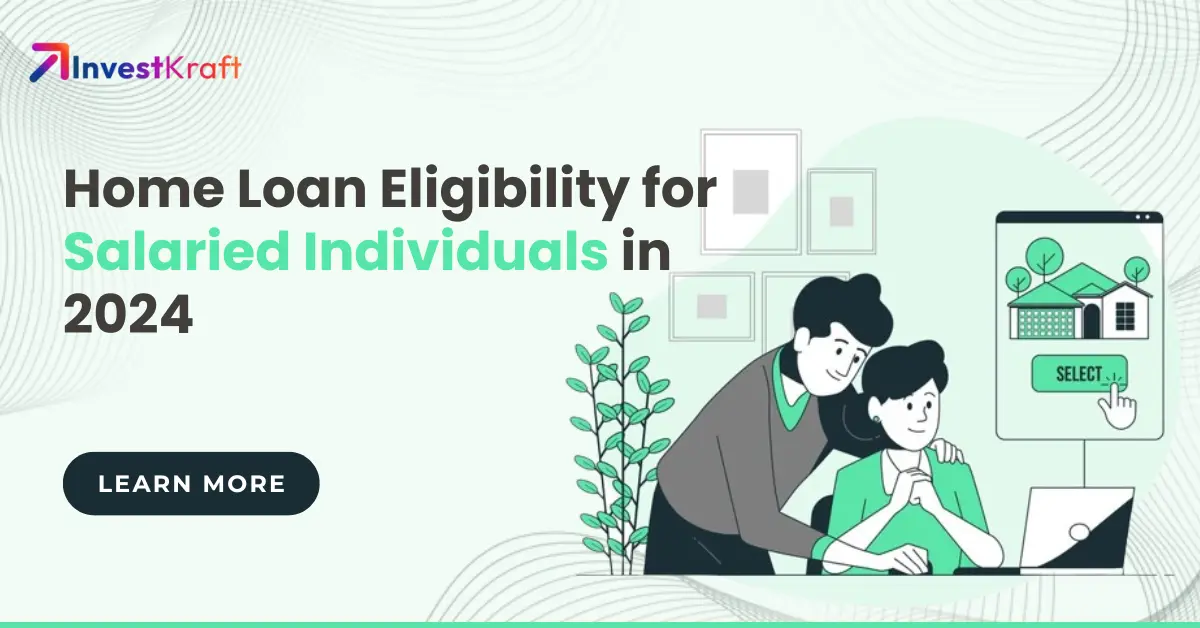
A Comprehensive Guide to Home Loan Eligibility for Salaried Individuals in 2024
When purchasing a new home, the costs involved can be quite high, necessitating the need for a home...
Read more...
Top 10 Best Banks for Home Loans
Looking to buy your first home? The process can be thrilling, tiring and a bit scary, especially in...
Read more...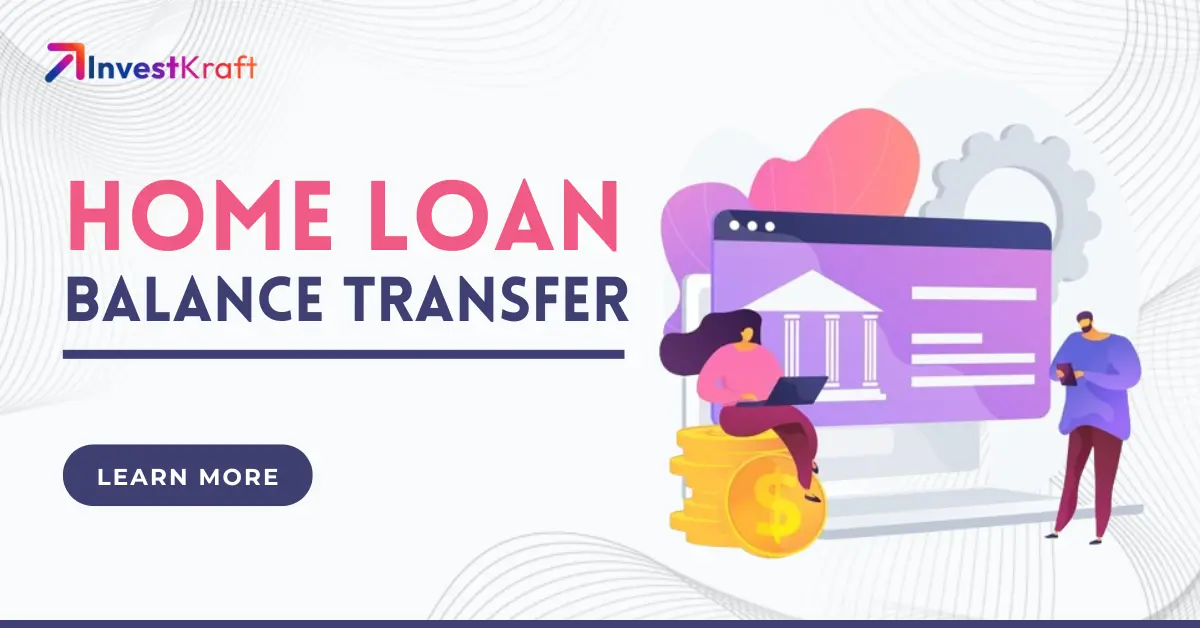
10 Factors To Consider While Choosing Home Loan Balance Transfer
We have different needs and financial requirements in life for which we often apply for loans. Among...
Read more...
Home Loan Balance Transfer: Your Complete Guide to Saving on Interest Rates
Are you feeling the weight of your home loan stretching out over the years? Whether you're already i...
Read more...
Role of Credit History in Home Loan Approval and Interest Rates
A house-buying endeavor requires a significant investment from the lender as well as the buyer. As a...
Read more...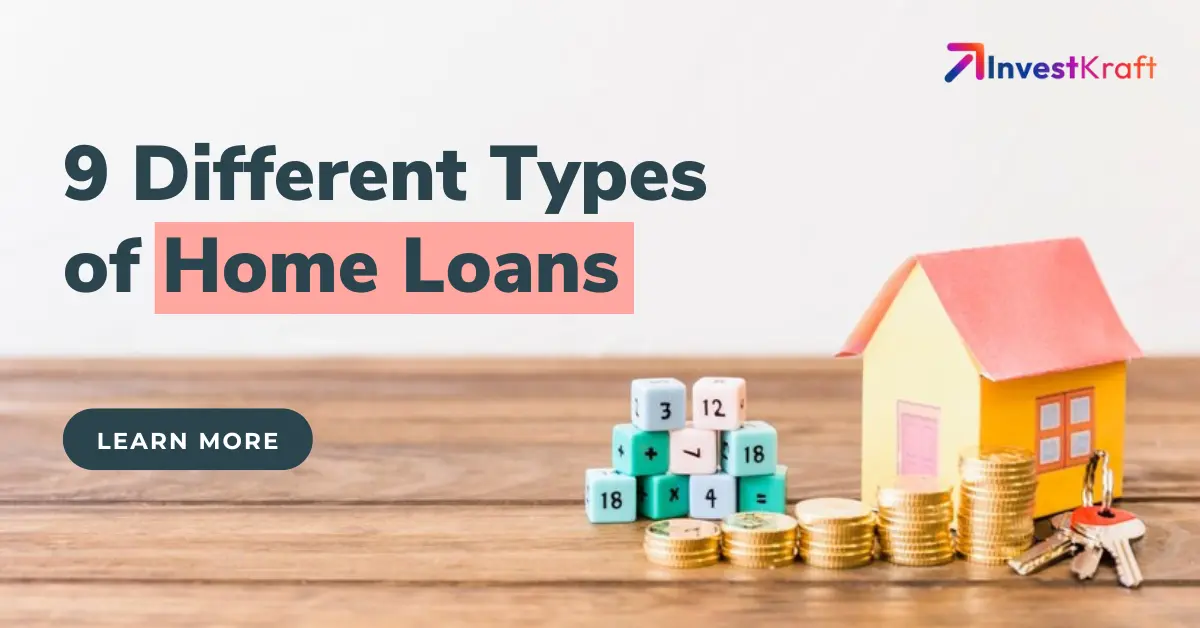
9 Different Types of Home Loans Available in India 2024
Everyone wants to own a home at some point in their lives. Everyone aspires to own a home since it i...
Read more...
10 Tips for First-time Home Buyers in India 2024
Buying a home is not just one of the biggest but also complex decisions in one’s life. This is why i...
Read more...
7 Major Benefits of Closing A Home Loan Early
Lenders have ceased to charge foreclosure fees to clients with house loans that contain variable int...
Read more...
Top 5 Home Loan Benefits for Women in India 2024
For many of us, purchasing a home is an emotional and once-in-a-lifetime choice. We borrow money, sp...
Read more...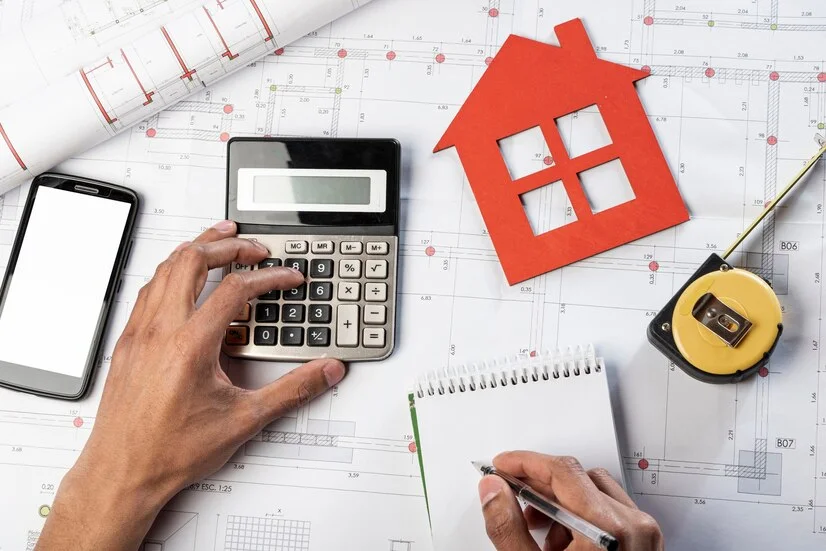
Guide To Tax Benefits on a Home Loan For an Under Construction Property
Tax Benefits on a Home Loan for an Under Construction Property, Over the past few years, there...
Read more...Reach out to our Experts if you have any Doubts
Like the best things in life, Consultations @InvestKraft are free
Drop a Mail or give us a Missed Call & Begin your Investment Journey here







